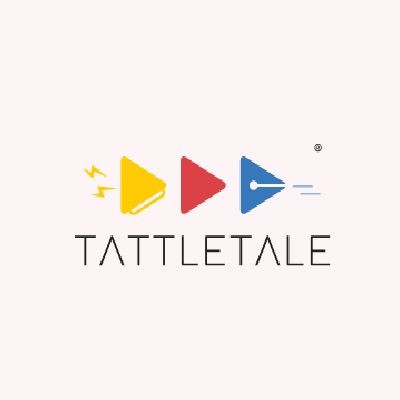In recent years, the concept of "rentvesting" has gained traction among Australians, particularly as housing affordability becomes a significant concern. Rentvesting refers to the practice of renting a property where one wants to live while investing in real estate in areas that are more affordable and potentially offer better returns. As Australia faces mounting pressures from increasing property prices and economic shifts, this strategy is becoming a viable alternative for many, especially younger Australians who find themselves priced out of the cities they work in.
Understanding the Australian Housing Market
The Australian Bureau of Statistics (ABS) highlights that property prices in major cities like Sydney and Melbourne have surged by over 20% since 2020, outpacing wage growth significantly. This trend has made home ownership a challenge for many, pushing potential buyers to explore alternative strategies like rentvesting.
One compelling factor driving this trend is the Reserve Bank of Australia's (RBA) monetary policy, which keeps interest rates at historic lows to spur economic growth. While this encourages investment, it simultaneously inflates property prices, creating a barrier to entry for first-time buyers. Consequently, rentvesting offers a practical solution, allowing individuals to live in desirable areas without the hefty price tag of ownership while still building wealth through real estate investments elsewhere.
The Financial Appeal of Rentvesting
Financially, rentvesting can be a savvy choice. By choosing to rent in lifestyle-rich areas while investing in more affordable suburbs or regional locations, individuals can leverage their investment properties to generate rental income and potentially enjoy capital growth. According to CoreLogic, regional property markets have seen a 15% increase in value over the past year, often offering better returns compared to urban counterparts.
Moreover, the Australian Taxation Office (ATO) provides tax advantages for property investors, including deductions for interest payments, depreciation, and other property-related expenses. These benefits can make rentvesting an attractive proposition for those looking to maximize their financial position.
Case Study: The Rise of Rentvesting in Melbourne
Consider the case of Sarah, a 30-year-old professional based in Melbourne. Priced out of buying in the inner city, Sarah opted for rentvesting. She rents an apartment in South Yarra, enjoying the vibrant lifestyle, while investing in a property in Geelong. Over three years, her investment property has appreciated by 25%, and she benefits from positive cash flow due to strong rental demand.
Pros and Cons of Rentvesting
While rentvesting presents numerous advantages, it is not without its challenges. Below is a detailed examination of the pros and cons:
Pros:
- Affordability: Allows living in preferred areas without the cost of buying.
- Diversification: Spreads financial risk by investing in multiple properties.
- Tax Benefits: Access to deductions that can reduce taxable income.
- Potential for Capital Growth: Investing in high-growth areas can yield significant returns.
Cons:
- Rental Instability: Renters may face tenancy uncertainties.
- Management Complexity: Owning investment properties can be time-consuming and complex.
- Market Risks: Property values can fluctuate, impacting returns.
- Emotional Detachment: Not owning one's home can lack a sense of security and attachment.
Future Trends and Predictions
Looking ahead, the trend of rentvesting is expected to grow, driven by economic and demographic shifts. A study by the Grattan Institute suggests that by 2035, a significant portion of the population under 40 may prefer rentvesting over traditional homeownership due to the flexibility and financial advantages it offers.
Furthermore, as urban areas continue to experience high demand and limited supply, rentvesting will likely become a mainstream strategy for navigating the housing market. Innovations in technology and the rise of property management platforms will also simplify the investment process, making it more accessible to the average investor.
Common Myths About Rentvesting
Despite its benefits, rentvesting is sometimes misunderstood. Here are some myths and the realities behind them:
- Myth: Rentvesting is only for the wealthy.
- Reality: With careful planning and strategic investments, rentvesting can be accessible to individuals with moderate incomes.
- Myth: Renting means throwing money away.
- Reality: Renting can be a strategic choice that allows for greater investment opportunities in areas that offer better returns.
- Myth: It's impossible to build wealth without owning a home.
- Reality: Rentvesting allows for wealth accumulation through smart property investments, often resulting in superior financial outcomes compared to traditional homeownership.
Conclusion: The Path Forward for Australians
Rentvesting represents a paradigm shift in how Australians approach property ownership. As economic conditions evolve and housing affordability remains a challenge, this strategy offers a viable path to financial security and lifestyle satisfaction. By embracing rentvesting, Australians can enjoy the best of both worlds: living in desirable locations while building a robust investment portfolio.
What's your take on rentvesting? Share your insights and experiences in the comments below!
People Also Ask
- How does rentvesting impact wealth accumulation in Australia? Rentvesting can enhance wealth accumulation by allowing individuals to invest in high-growth areas, generating rental income and capital appreciation.
- What are the biggest misconceptions about rentvesting? Many believe rentvesting is only for the wealthy, but with strategic planning, it's accessible to many Australians.
- Who benefits the most from rentvesting? Young professionals, first-time investors, and those priced out of urban markets benefit significantly from rentvesting.
Related Search Queries
- Rentvesting vs. buying a home
- Benefits of rentvesting in Australia
- How to start rentvesting
- Tax advantages of rentvesting
- Best suburbs for rentvesting in Melbourne


































TresaShack
11 days ago